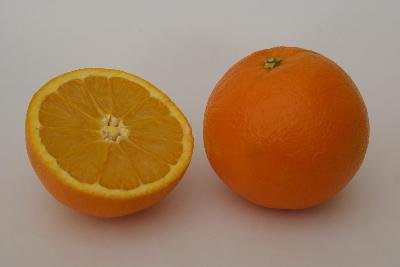Congratulations on your pregnancy! The first week of pregnancy marks the beginning of your exciting journey into motherhood. While your embryo is still tiny, this is a crucial time for its accelerated growth and development. During this early stage, it’s important to focus on nutrient-dense foods to ensure you and your embryo are getting the right vitamins and minerals for optimal health. Contrary to popular belief, you don’t need extra calories just yet—what matters most is the quality of the food you eat.
In this article, we’ll cover the best foods to eat during your first week of pregnancy that can support your baby’s growth and provide you with the essential nutrients you both need. Let’s dive into the healthy choices that are perfect for the beginning of your pregnancy.
1. Low-Fat Yogurt: A Great Source of Calcium and Protein
Including low-fat yogurt in your diet is an excellent choice for both you and your growing embryo. Yogurt is packed with calcium, protein, and folic acid, all of which are essential during early pregnancy. The probiotics found in yogurt, such as acidophilus, also help support a healthy gut and digestion, which is beneficial as your body adjusts to pregnancy.
To make the most of this nutritious snack, consider adding fruit-flavored yogurt to your smoothies, having it as a midday snack, or creating a yogurt parfait with fresh fruits and nuts. A delicious and healthy way to get those essential nutrients!
2. Citrus Fruits: Boost Your Immune System
 Citrus fruits, including oranges, lemons, tangerines, and grapefruits, are packed with vitamin C, an essential nutrient during pregnancy. Vitamin C is known for its immune-boosting properties, which can help protect both your immune system and your embryo’s from harmful free radicals like toxins, infections, and viruses.
Citrus fruits, including oranges, lemons, tangerines, and grapefruits, are packed with vitamin C, an essential nutrient during pregnancy. Vitamin C is known for its immune-boosting properties, which can help protect both your immune system and your embryo’s from harmful free radicals like toxins, infections, and viruses.
In fact, as nutritionist Sophie Pachella (2009) explains, pregnant women are five times more likely to catch illnesses like the flu or colds. Increasing your intake of citrus fruits during the first week of pregnancy can give your immune system a natural boost and may even help alleviate some symptoms of morning sickness later on.
3. Fatty Fish: Essential for Brain and Nervous System Development
Contrary to some myths, fatty fish are safe to eat during pregnancy, as long as you choose varieties that are low in mercury. Salmon, sardines, shrimp, and tilapia are all healthy options that provide a rich source of omega-3 fatty acids. These healthy fats are essential for your embryo’s brain and nervous system development.
However, be sure to avoid fish with high mercury levels, such as shark, tuna, and swordfish, as they can pose risks to both you and your growing baby. A safe rule of thumb is to consume no more than 6 ounces of fatty fish twice a week. Enjoying fatty fish in moderation will help provide the necessary nutrients for your baby’s development while supporting your health during pregnancy.
4. Green Leafy Vegetables: Packed with Folate and Nutrients
 Green leafy vegetables like spinach, kale, mustard greens, and Swiss chard are excellent choices for first-week pregnancy nutrition. These vegetables are loaded with important vitamins such as folic acid, vitamin K, and vitamin C, all of which are vital during early pregnancy.
Green leafy vegetables like spinach, kale, mustard greens, and Swiss chard are excellent choices for first-week pregnancy nutrition. These vegetables are loaded with important vitamins such as folic acid, vitamin K, and vitamin C, all of which are vital during early pregnancy.
Spinach, in particular, is rich in folic acid, which helps prevent neural tube defects, such as spina bifida. As per the U.S. Food and Drug Administration (2013), folic acid is essential in the early stages of pregnancy to ensure proper development of your baby’s brain and spine.
Increasing your intake of green leafy vegetables during your first week of pregnancy will provide you with a variety of nutrients that are essential for your growing baby.
5. Whole Grains: A Healthy Source of Fiber
Incorporating whole grains like brown rice, quinoa, and oats into your diet during the first week of pregnancy can be beneficial for maintaining energy and digestive health. These grains are rich in fiber, which helps prevent constipation—a common issue during pregnancy.
Whole grains also provide B-vitamins that support your body’s energy production, which is especially helpful as your body goes through various hormonal changes during early pregnancy.
Conclusion: Nutrition Matters During Your First Week of Pregnancy
Your first week of pregnancy is a time of significant change and growth for your embryo. By focusing on nutrient-dense foods like low-fat yogurt, citrus fruits, fatty fish, and green leafy vegetables, you can ensure that both you and your baby get the essential vitamins and minerals needed for healthy development.
Remember that while you may not need extra calories just yet, maintaining a balanced diet is key to supporting your pregnancy. Focus on whole, unprocessed foods and consult your doctor or nutritionist for personalized advice on your diet during pregnancy.
By making these healthy choices, you are giving your growing embryo the best possible start in life!
